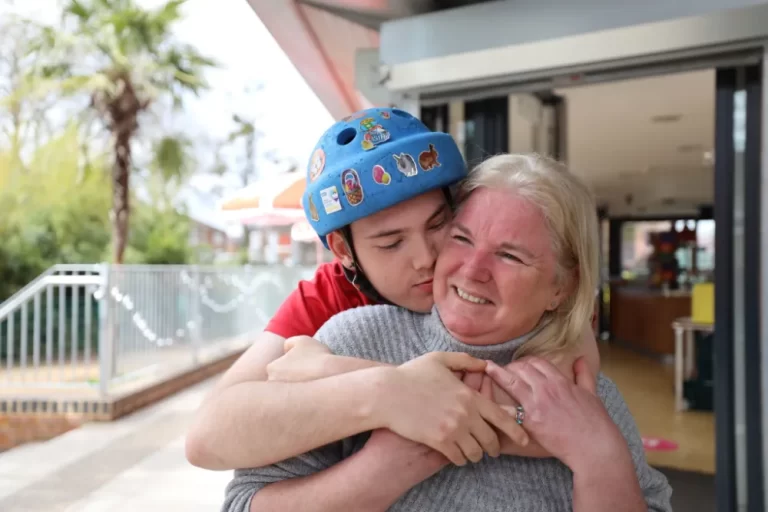Complex Care: Supporting People to Live Life on Their Own Terms
Enabling human-first support in people’s own homes, delivered by care teams highly trained in strengths-based practices, meeting people’s desired outcomes.
Autism and Learning Disability Care
Highly Trained Support Workers
An In-house multidisciplinary team of therapists
Human-centred Support that Everyone Deserves
Leaf Complex Care is a social care provider offering tailored support primarily for autistic people and people living with a learning disability in the comfort of their own homes. We understand how challenging it can be for many people to live great lives in their own local communities, with the right to live the life they desire.
Aligned with people’s needs, our support workers provide person-centred and CQC-regulated care based on Positive Behaviour Support approaches. Through detailed planning, we encourage people who require complex care to achieve their aspirations with the right care at home.
What once seemed impossible is Rylee’s reality today. What does it mean to live a life of Rylee’s choosing?
2025 White Paper Publication: What people truly need is a system that listens.
Real stories. Real pressures. Real change needed.
Each person and family we serve deserve to lead self-determined lives in safe, nurturing environments. We are dedicated to upholding high standards of safeguarding through transparent policies and collaborative care. Please read our Safeguarding Statement for more detailed information.
Our services
Based on Positive Behaviour Support (PBS) practices, we provide the following services:

Our Therapy Team
Leaf Complex Care’s in-house therapists strive to use methods of communication that suit the person, enabling caring support and trust. Our therapists’ aim is to create a presence where person-centred therapeutic intervention can impact people positively.
The In-house Therapy Team Consists Of:
Positive Behaviour Support (PBS) Specialists
Occupational Therapists
CQC Ratings
Delivering the right support and the right care at the right time with the right culture are paramount. Read our CQC reports to gain more insight into our care provision and why families and care professionals utilise our services.
Rapid Response Service
Our crisis support service has been developed to enable people experiencing challenging times, ensuring they can smoothly transition back home after unnecessary hospitalisations. We also work to avoid unnecessary admissions through timely intervention and support.
Get the right care in place within 4-6 hours of the initial call, depending on your location.

Consistency of Care
Recognising the evolving nature of the person’s needs is at the heart of our work because every care journey matters and our people matter. We provide:
Continuous support to 40+ families
High-quality care through 160+ support workers
Innovative support through 13+ therapy specialists
Helpful information 24/7 from our four offices in Bristol South East, Birmingham and Somerset
Testimonials
Discover first-hand experiences from the families we support and gain insight into their care journeys through their testimonials.

Cathy, Jacob’s mum

Jennie, James’s mum

P.’s mum
Autism Accreditation Specialist Certificate
Our services in the Midlands and Somerset have been accredited by the National Autistic Society with the Autism Specialist Award.
This recognition reflects our ongoing efforts to provide inclusive, person-centred environment, where autistic people feel understood, respected, and supported – across all our services.

Blog

Emotionally Based School Avoidance (EBSA): Identification and Support Strategies

The Science Behind Social Stories: Why They Work for Autism

The Key Elements of a Trauma-Informed Healthcare Practice

Signs of Retraumatisation in People
Your Feedback
Supporting people and their families will always be our priority. To continue our mission, we would love to hear your honest feedback. Your experiences help us see where we can improve in our journey to help people live their best lives.
